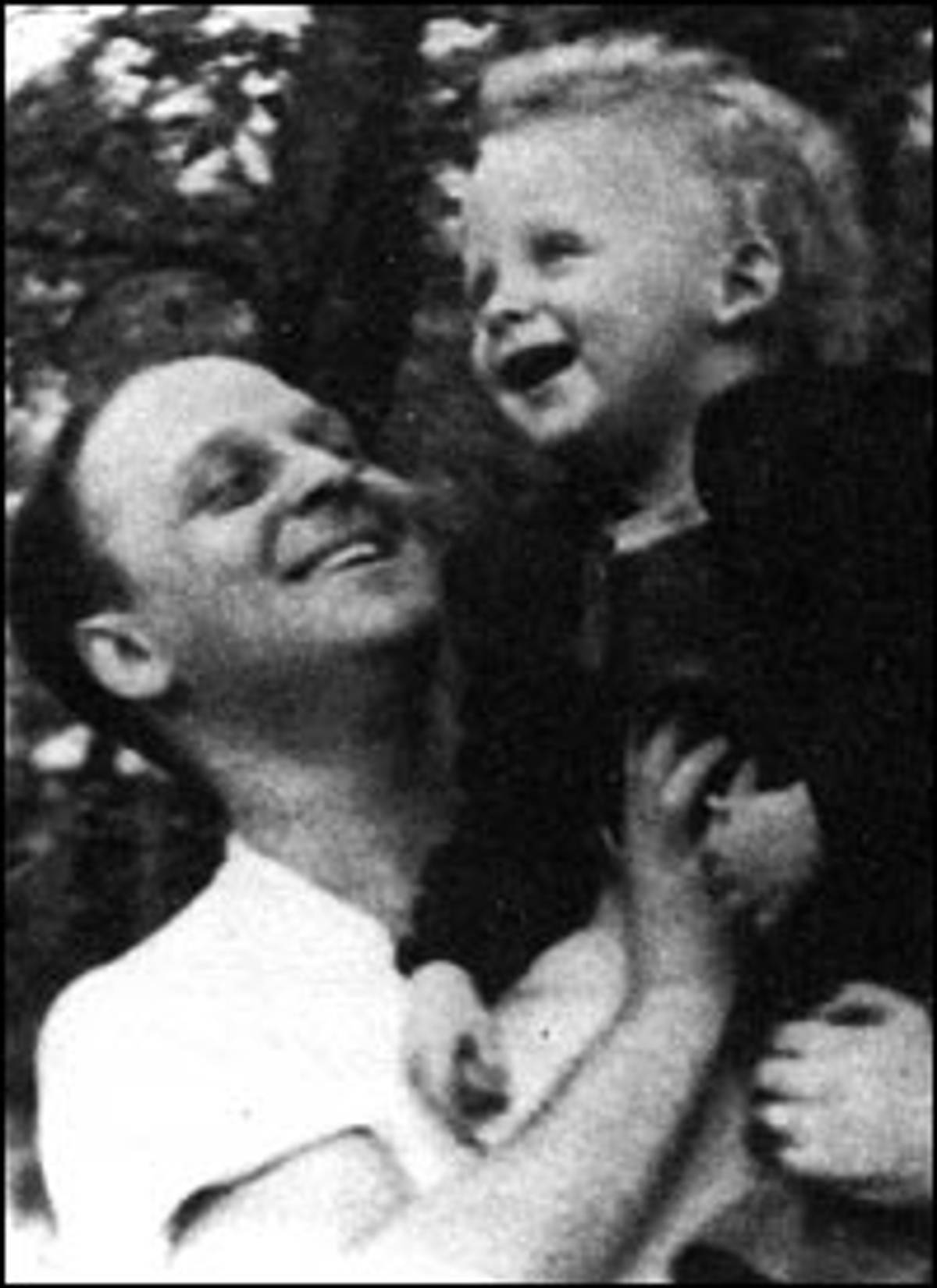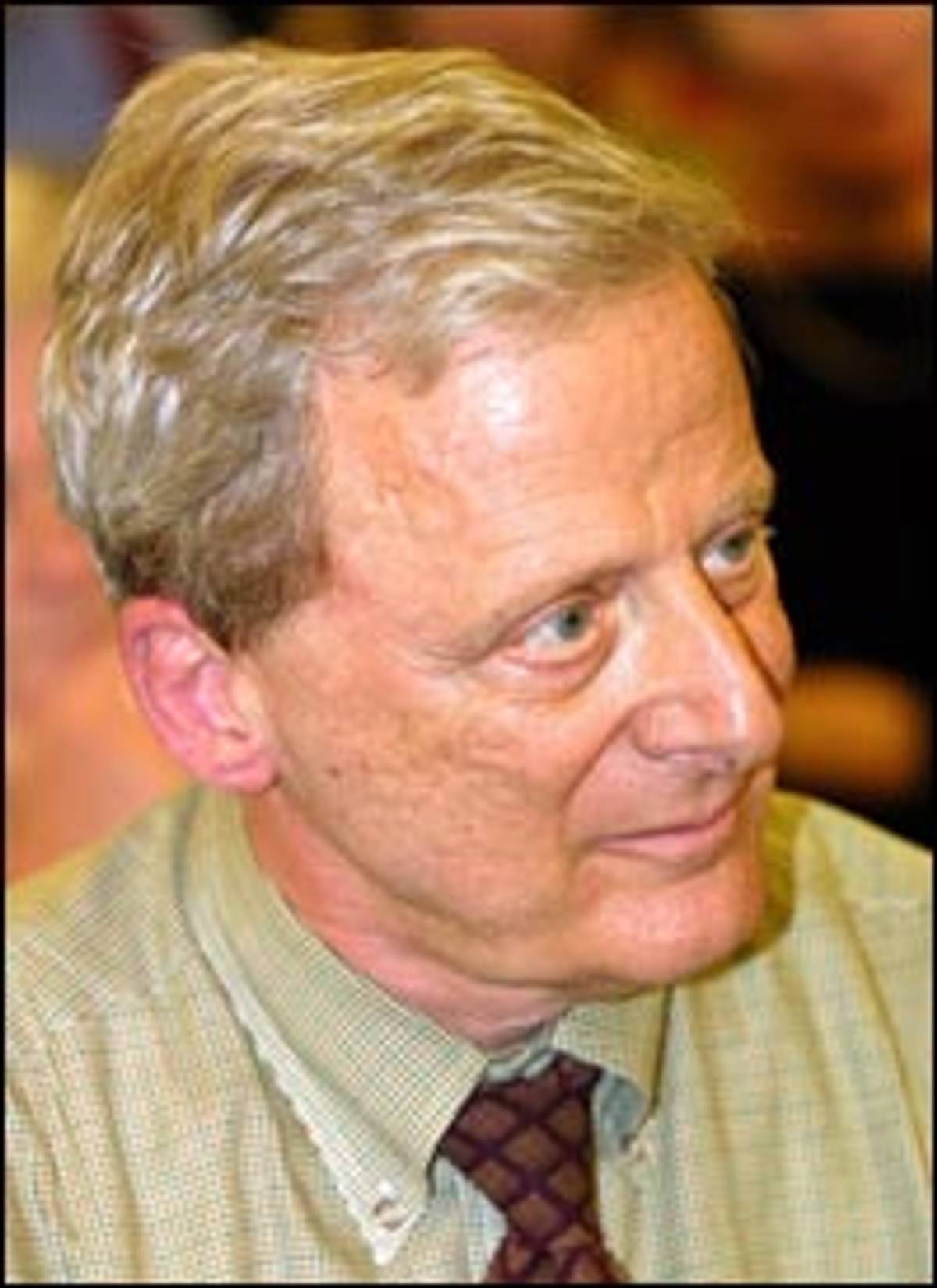Joseph Lelyveld, the former executive editor of The New York Times, has written an unusual memoir. For one thing, he doesn’t puff up or dwell on his career. Instead, Omaha Blues centers on Lelyveld’s lonely childhood. His parents’ marriage slowly unraveled, and for a few years the only constant and comforting presence in his life was Ben Goldstein, who worked for Lelyveld’s father at the Hillel Foundation. Arthur Lelyveld eventually fired Goldstein, a long-time radical, for his support of a Communist front-group opposing the Korean War.
And Lelyveld doesn’t rely on memory; he treats his recollections as just another source to be distrusted and verified. Instead, he reported out his childhood, filing FOIA requests, traveling for interviews, and combing through archives, none more important than a box stored in his Hudson Valley country home that he long avoided, holding letters between his now-deceased parents.
I read that you originally conceived of the book as about Ben, who lost his pulpit in Montgomery for speaking out about the Scottsboro case and who hung out with Soviet spies.

Actually, I didn’t really conceive it. I had always wanted to explore Ben’s life. I was talking about it 30 years ago. But I never did anything. So when I was having this conversation, talking about book projects vaguely, I mentioned Ben. And Andrew [Wylie], who later became my agent, said, “So that would be a book about your father.” It was a really surprising thought. Sometimes people can say something obvious to everyone in the world except you.
I didn’t jump on immediately. I just kind of lived with the idea. But at some point in the following months, the idea that was in Andrew’s statement germinated in my mind, and I started organizing my parents’ letters. Once I did that, the shape of the book was clear in my mind. I didn’t have a lot of faith in the project.
Meaning?
I didn’t go around talking about it with people. I didn’t try to get an advance. I didn’t even talk about it with Andrew. He didn’t know I was working on it. I just started writing. I read the letters in the summer of 2002 and probably started writing by December. By May I had four chapters, about half the book.
So you wrote the four chapters without sending out a book proposal?
Yes. And then I showed them to my wife; she liked them. And then I reached a point where it was pointless to go on unless someone was interested. So I FedExed them to Andrew. He responded very quickly; he liked them a lot and asked if he could show them to publishers.
I imagine it was very difficult to write and publish a book about such personal things.
It wasn’t so difficult. Everyone says that. And I can see why you would. But at a certain point, when I could see the story, the challenge of telling the story kicked in. I had already done the thinking—that may have been difficult—but the writing on some level was also pleasure. Writing is not normally pleasurable to me. But I liked the freedom I was giving myself.
Freedom in what sense?
The freedom to tell only what I wanted. I just silenced the editor in my head that said things like, “Isn’t it confusing that you start with the death of your father? Shouldn’t you start with your childhood?” I can hear those conversations, the ones that always begin, “The reader will want to know.” But I wasn’t writing it that way; it wasn’t an assignment.
The whole thing was driven by my curiosity, and if I wasn’t curious, I didn’t write about it. In a funny sense, it’s my Rorschach test.
In the book, you allude to it as a kind of therapy.
Yes, loosely using the term, sure. Many people say I could do with more….
So there was a sense of catharsis?
I’m not sure catharsis is the right world. But liberating in some ways. Partly because it validated some memories that I thought were highly suspect. But partly because it put me in touch with feelings about my parents—both tender and angry ones—that I had bottled up for most of my adult life. This sense that I had become a burden; that I had been ‘abandoned’ by my parents on a farm—this was my little package of grievances—but I didn’t know exactly how much was based in reality.
I just had these frozen images in my mind. It turns out my feelings were solidly based in reality, which…I don’t know why it felt good to discover that. But it did. Whatever the problem was in that period, it was my mother’s problem. And I suffered some consequences because of it. But I didn’t make it up.
I assume that the way you came at this book, your skepticism about your own memory, was natural given your journalistic—
I wasn’t skeptical to begin with. I had assumed a bar mitzvah from my childhood was three months earlier than I thought it was.
In other words, your father’s dressing-down of another rabbi for his McCarthyite sermon came before he fired Ben for his Communist connections.
To discover I had it ass-backwards was really fascinating. And then it was clear why I had rearranged it: to make my father a moral hero.
So your focus on memory in the book—
—Evolved as I was writing it. As I discovered that things weren’t quite the way I had imagined them, it emerged as a theme itself.
I assume you’ve read Cynthia Ozick’s review in the Times Book Review, where she gently chides you for using reporting as a crutch, a way to avoid the emotional side of things.

I think Ozick was off on her own genre thing. I understand what she’s talking about. I respect that kind of writing. I said what my model was, Michael Holroyd’s Basil Street Blues, where he attempts to write a biography of his family. I say to myself, well I’m not a biographer, I’m a reporter, so if he can write a biography on his obscure family, I can do reporting on what happened in my childhood. That was the light bulb moment for me.
For her, journalism is clearly just a lesser, more boring, duller occupation than literature with a capital L. Well, I think some who engage in journalism, such as Russell Baker, write a hell of a lot better than most people who think they’re engaged in literature.
She said I was emotionally detached. She mentions three places where I was emotionally engaged, I think you could find 30. That was very—it was arbitrary and unfair. On the other hand, Steve Dubner in his New York magazine piece said the book was full of raw emotion. They could both be right.
You mention the parallel in the book between being a foreign correspondent and your experiences growing up.
Psychic flight. There’s an edge of self-mockery in that and an element of truth.
But the other parallel that struck me is that your father went on a civil-rights march and you went south soon after to cover the movement. Now, I understand somebody assigned you the story, but I’m curious in a more general sense about your drive in journalism, and the connections to… social justice is probably too lefty a phrase.
I don’t mind “social justice.” I first became a reporter in 1963, and I wrote about race from the beginning. I then ended up in South Africa, not by choice but I was drawn powerfully to that story. And the place I wanted to go all along was India because, whatever you want to call it—Third World, development issues, poverty issues—was the thing I wanted to specialize in. And later I prepared myself to go to China—though I didn’t get to go because it hadn’t been opened to journalists yet.
But one could say that about any topic one specializes in, these topics appealed to you because….
The rich world, the poor world, you know, all of that, north, south—whatever the jargon terms were at the time seemed like a good framework for directing my energies.
And in terms of your father’s zeal, both for civil rights work and his advocacy of Zionism, there’s an aspect of tikkun olam—healing the world—in that. It seems you had a similar desire but obviously a different path.
Yeah, I think that’s true. I don’t know what to say about it. One thing that really pissed me off in terms of the Ozick review is when she had my father sighing over my attitude on Israel, when really she doesn’t even know what my attitude on Israel is, because I hadn’t and haven’t declared it.
She also quotes me a little out of context. I had mentioned in the book the “Jewish folk belief” that the New York Times is full of self-hating Jews, and she makes that the “Jewish folk belief” that the Times provides unreliable coverage on Israel. Maybe to her they’re the same thing. But they’re not. I would argue that the Times is reliable on Israel. And you’re not a self-hating Jew automatically if you work at the Times.
But, and you mention it in the book, the kernel of truth there is….
The history of the Sulzberger family. She then connects me to that, which is quite unfair, because Mr. Adler was anti-Zionist and I haven’t been anti-Zionist for 30 seconds of my life.
You give the impression in the book of having a certain distance from Judaism—at one point, you mention not knowing the words to a prayer. Given that your father was a rabbi, was that ever a source of tension?
I don’t think there was any tension between me and my Dad over religion. I respected what he did. I’ve never regarded my outlook as being the result of a revolt of some kind. I’ve never wanted for a minute to be anything other than Jewish. My distance is from the experience of Jewish worship, moving as the liturgy can often be. I don’t believe in a God who takes an interest in the fate of individual humans. Just as I don’t think the choice of a Pope fulfills God’s design, I don’t think the existence of a Jewish state in Israel fulfills God’s design. I do think it is a justifiable fulfillment of the course of Jewish history. I do think of myself as one of the Jewish people. I do care about our fate. So I’m a secular Jew, of whom there are many. My father’s absorption in Judaism was balanced in some ways by my mother’s focus on literature. It might be said I inherited her bent.
You mention in the book, you were “so busy dodging jobs for which others might have killed.”
Most of the jobs I had I sought, some I invented. They were very nice to me and very indulgent of me. But they could never quite figure out what would make me happy. I resisted going to Washington, doing to the obvious “next moves.” Sometimes it doesn’t make any sense to me when I think about it.
I used to say, after every foreign correspondent assignment, it would be my last one. I never wanted to have a career as a foreign correspondent. I would come back to New York, writing longer pieces that would give me more room to develop as a writer. And then something would happen. I remember bending over in the lobby of a hotel in Los Angeles and seeing the frontpage in the Los Angeles Times: NIXON GOING TO CHINA. I said, “Me too.” And that’s the way I made my so-called career moves. It was just my way of dealing with a big complex paper, and dealing with myself.
It seems very self-indulgent in retrospect. But that’s the way I was.